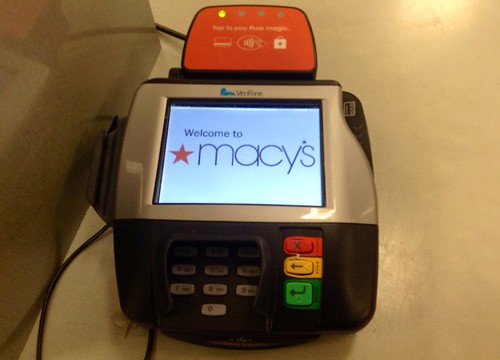Credit cards are known to frustrate many people. Like many other aspects of life, education is key to demystifying charge cards. Use the tips in this article to help you learn how to live responsibly with credit cards.
Try to keep at least three open credit card accounts. This is especially helpful when building a good credit score, but remember these cards should be paid in full monthly. However, opening too many is a mistake and it can hurt your credit score.
Set a budget that you can stick to. Remember, your credit card’s credit limit is not a target to aim for. Be aware of how much you can pay monthly so that you can do that consistently and avoid those interest charges.
Do not close credit card accounts until you understand the impact it may have. Many times it leads to lowering your credit score which you do not want. It is also best to keep your oldest cards open as they show that you have a long credit history.
Credit Card
Sign the back of your credit card as soon as you receive it to avoid fraudulent use. Many cashiers will check to make sure there are matching signatures before finalizing the sale.
Take note of all your credit card expenditures, so that you are sure that you are spending within your means. It is quite easy to lose track of what you are using your credit card for, so you should commit yourself to keeping track of all of these expenditures in either a notebook or on a spreadsheet.
Open and go over everything that is sent to your mail or email about your card whenever you get it. Credit card lenders can, and often will, make changes to their terms but they must inform consumers of these changes in writing. If you don’t like the changes, you have the right to cancel your credit account.
Credit cards can be attached to various loyalty accounts. You should find a rewards program that will benefit you for regular usage of your card. This can actually provide a lot of benefits, if you use it wisely.
Select a password for your card that’s tough to identify for someone else. Information like birth dates or middle names make terrible passwords because they can be easily figured out.
Interest Rate
Keep up with the emails and correspondences from your credit card company. Read them immediately. A credit card company, if it provides you with written notifications, can make changes to membership fees, interest rates and fees. Remember, if you don’t like any of the changes, you can legally demand that your credit card account is closed.
To avoid losing more money, confront your credit company about the opportunity for a lower interest rate. You should be able to negotiate a more beneficial interest rate if you have a reasonably long history of timely payments to your credit card company. All you need is one phone call to help you get a better rate.
Be careful when you use bank cards to make purchases online. Before entering card information online, ensure you’re using a secure site. When a website is secure, your card’s information is as well. Any email that asks for credit card details should be immediately deleted as these are generally fraud schemes.
If you are in the market for a bank issued credit card, look for one that offers a low interest rate. Also avoid paying annual fees. There are so many credit card companies that a card with annual fees is just a waste.
Ask your bank to change your interest rate if you do not like it. If the bank refuses after you talk with their retention team, you should search for better rates. If you locate one, go with this company, as they can better help your needs.
Accounts Open
Retain a sales receipt when making online purchases with your card. Keep the receipt so that you can review your credit card bill, to ensure that the online company did not charge you the wrong amount. File a dispute if you were overcharged as soon as you discover it. This can be an excellent method of assuring you don’t get overcharged for purchases.
Once you acquire a credit card, you should work to keep it active for the longest period possible. You should avoid switching to different accounts, if possible. The length of time you have had accounts open is an important factor in calculating your credit score. Building credit is in part about keeping accounts open when possible.
Restaurant and grocery charges on a charge card may take longer to show on your statement which can be deceiving when it comes to knowing the amount that you have available. This may result in you spending too much money when you see an artificially low balance.
Don’t write down your password or pin number. It’s crucial to remember all of your passwords so you’re the only one who can access your accounts. If you write down these passwords or pins, you could potentially give someone who you do not want to have access to your accounts an open door to them.
If uneducated, it is easy for people to become frustrated and overwhelmed by their bank cards. However, many of these frustrations can be prevented with a little due diligence in selecting the right card. Use the information here to enjoy your cards and all of their benefits.





